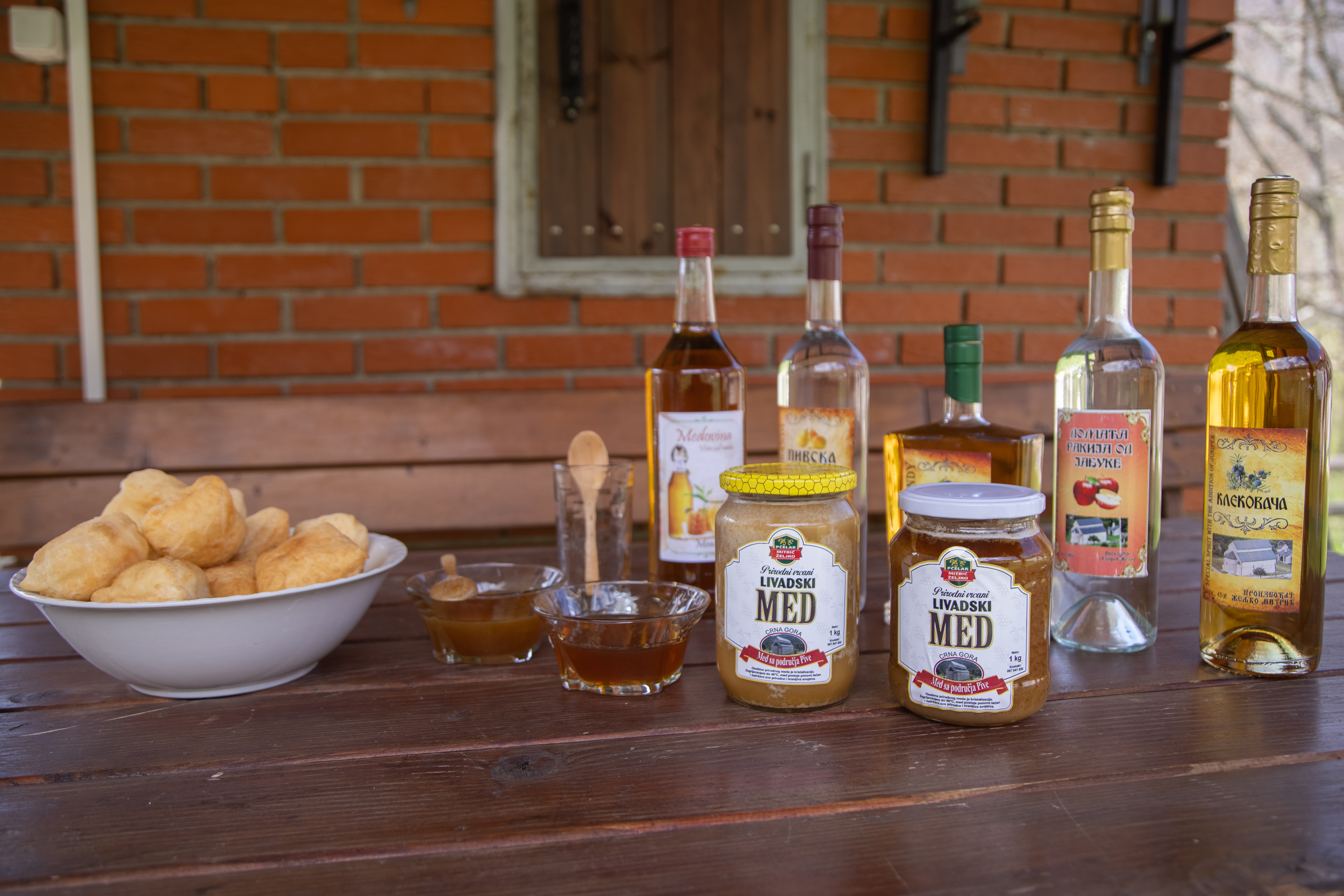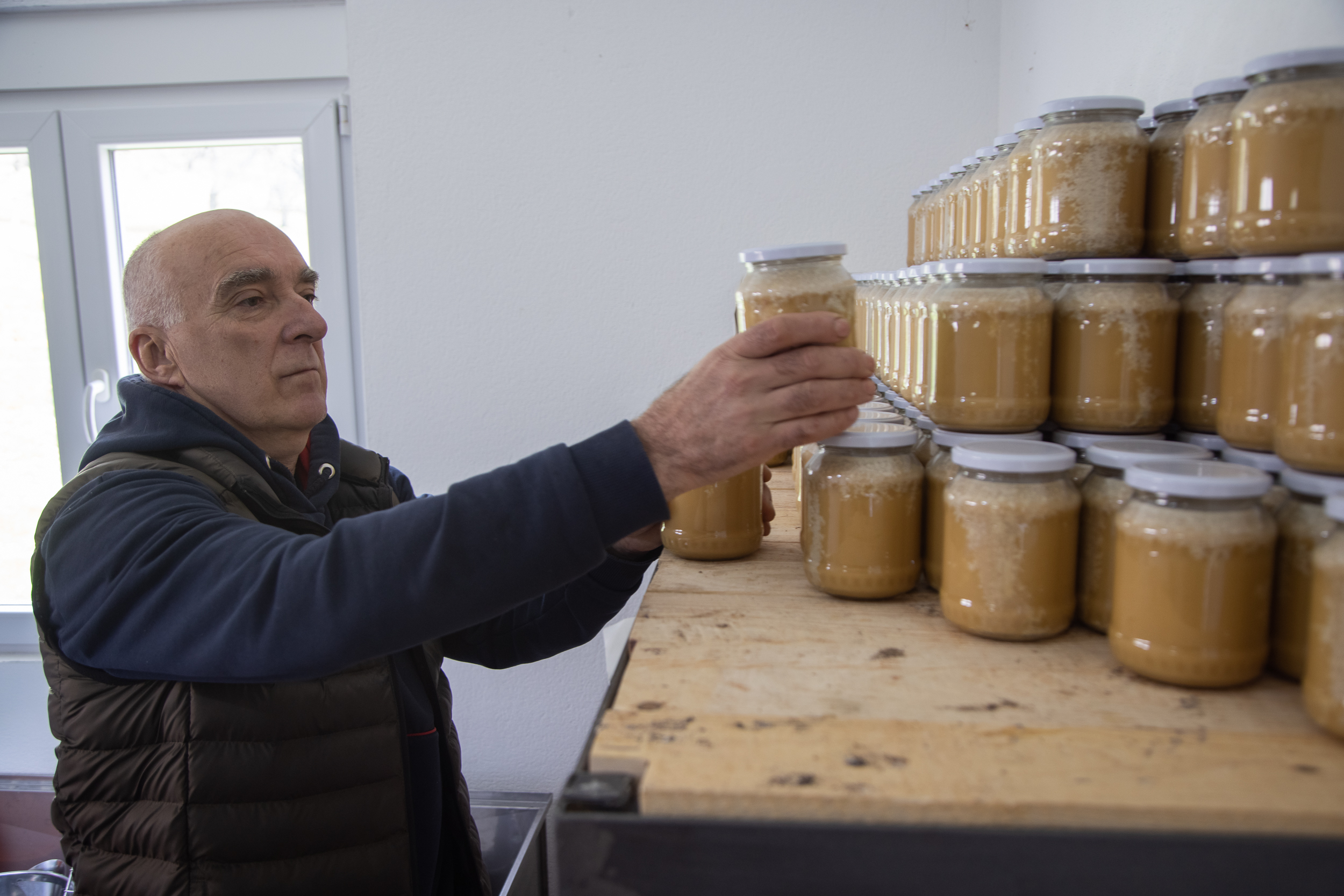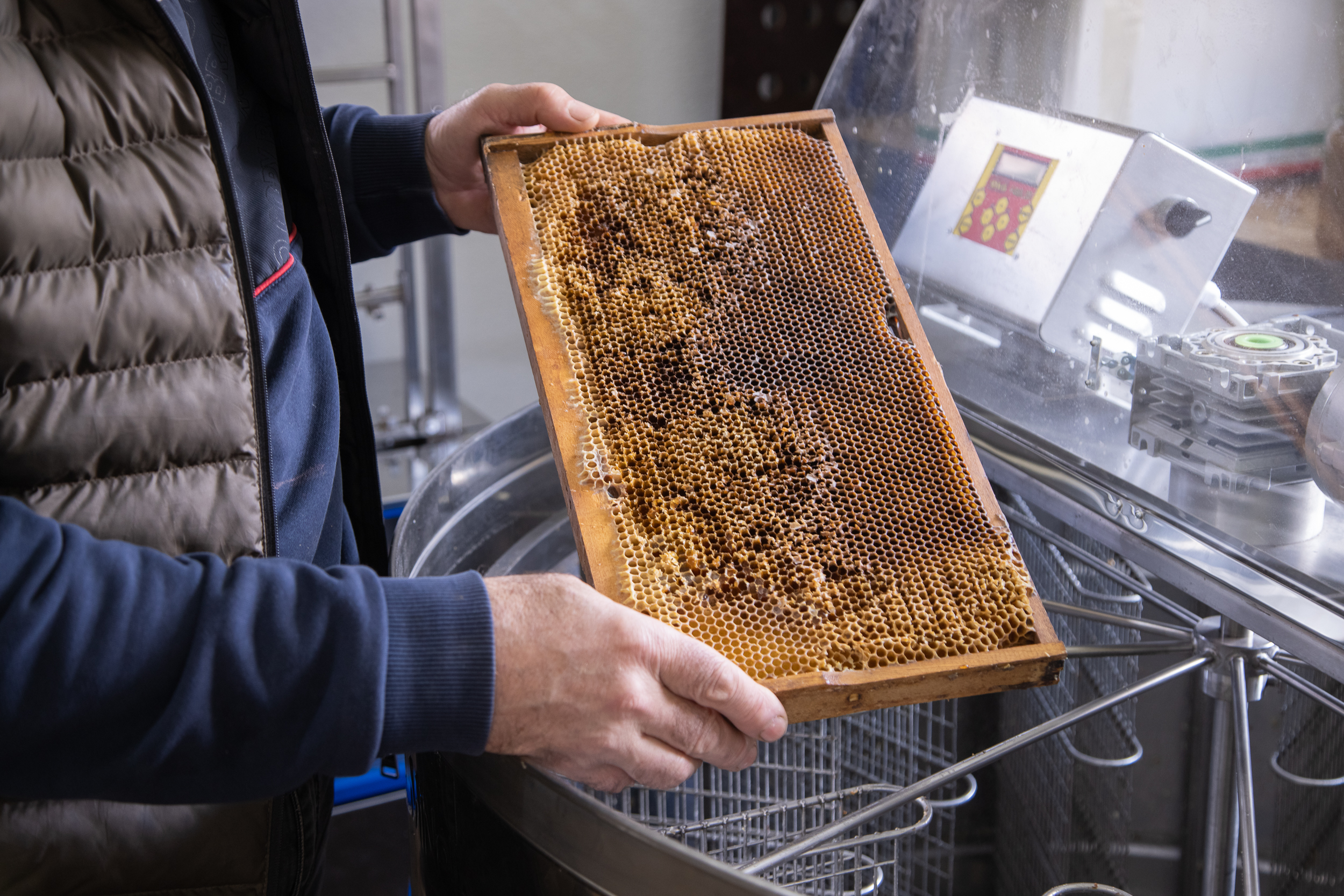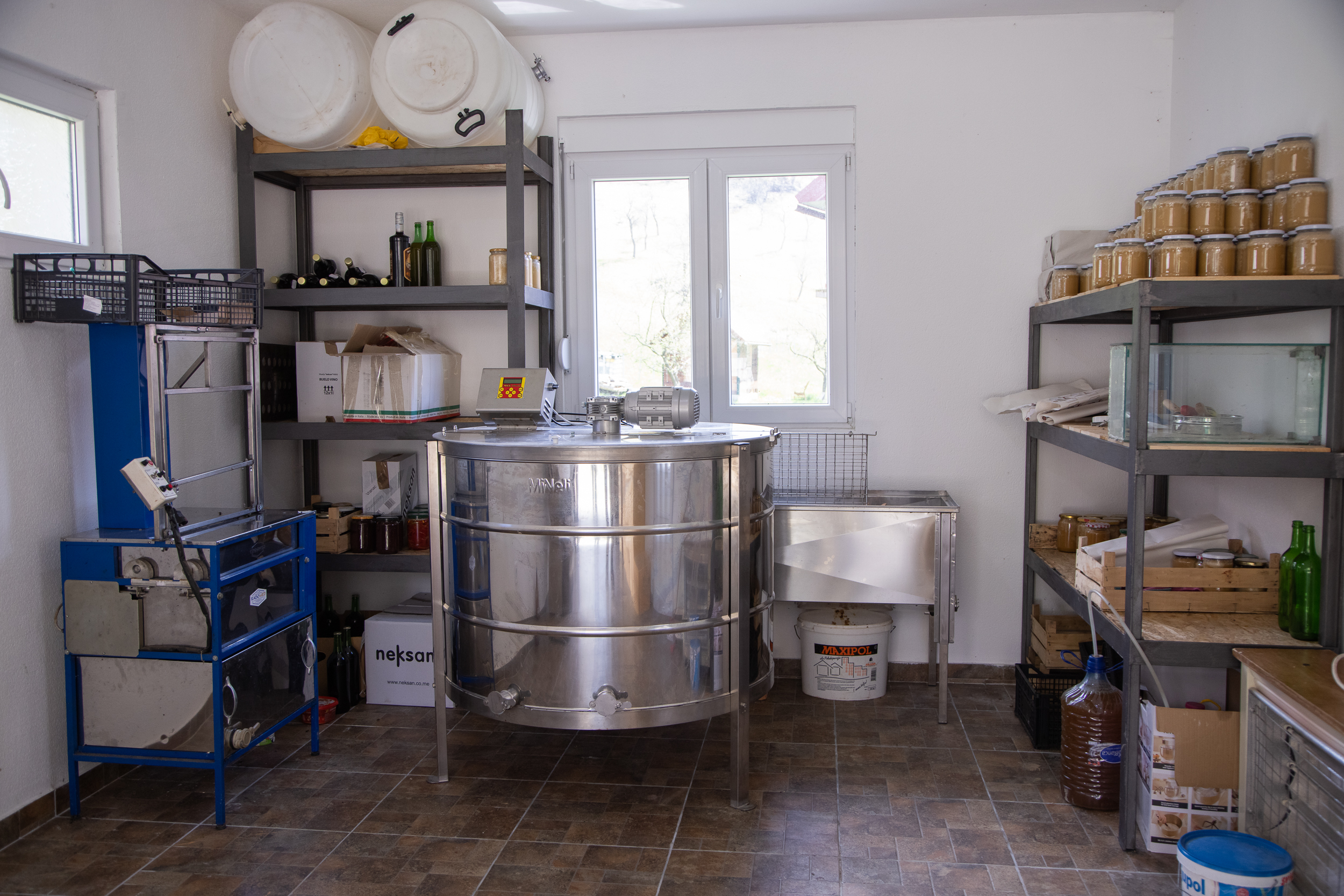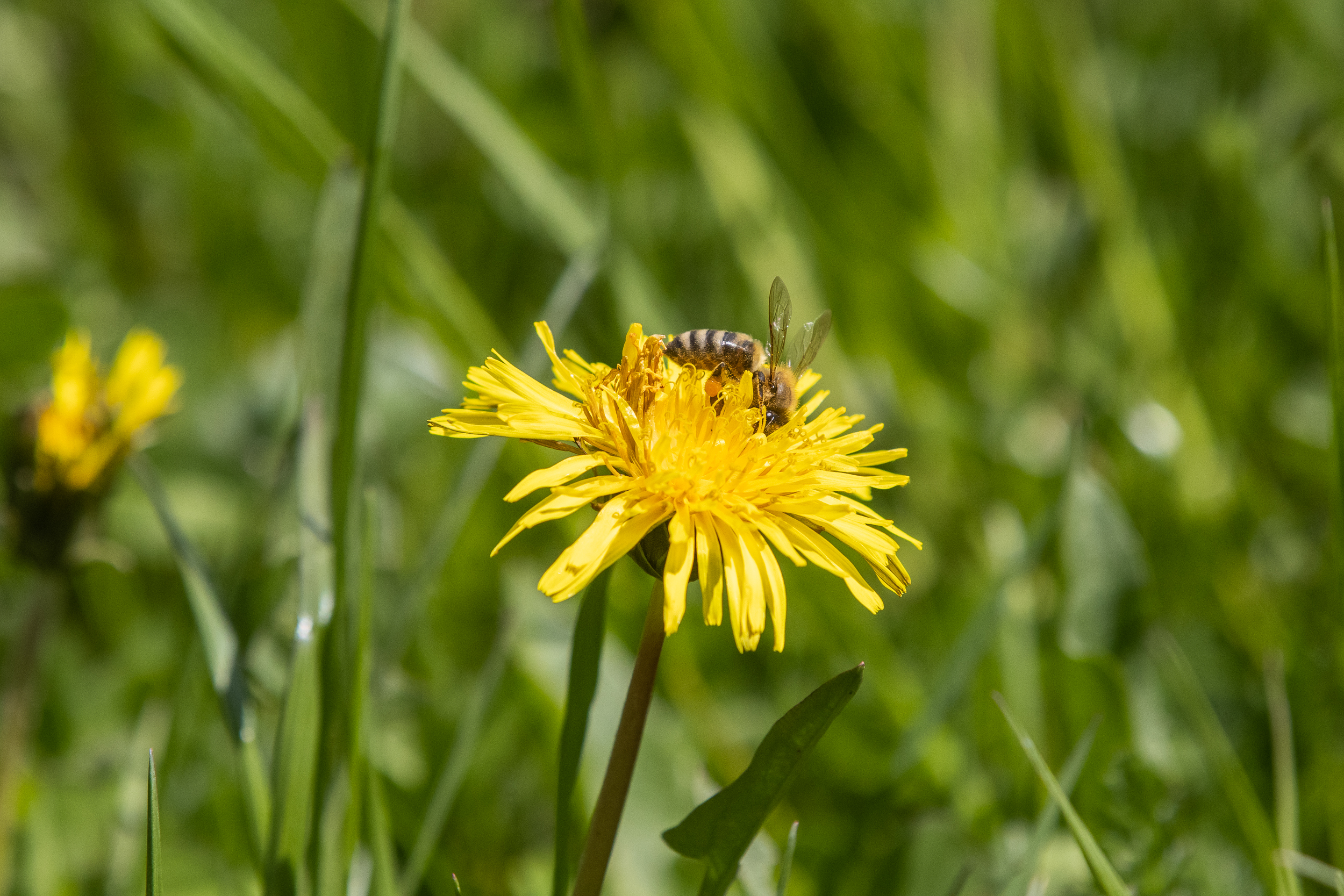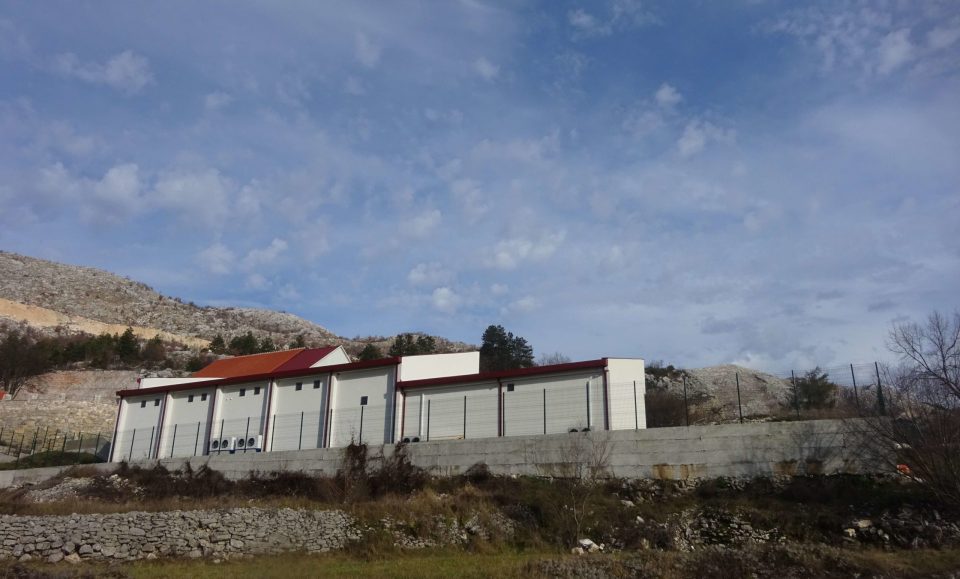It is unusually quiet in the immediate vicinity of Piva Monastery, in Plužine. The silence is disturbed only by the bees buzzing. Here, in this natural oasis, lies the apiary of Željko Mitrić.
“Tradition…,” this is how our conversation with beekeeper Željko begins.
Beekeeping runs through his blood. It is a family tradition.
“My grandfather and father were beekeepers. That’s how the love for bees was born,” explains Željko.
He acquired his first beehives about forty years ago, populated them with bees, and began beekeeping.
“In the beginning, it was quite challenging. Many sacrifices, and ups and downs were needed to get to where I am today,” this hardworking beekeeper recalls.
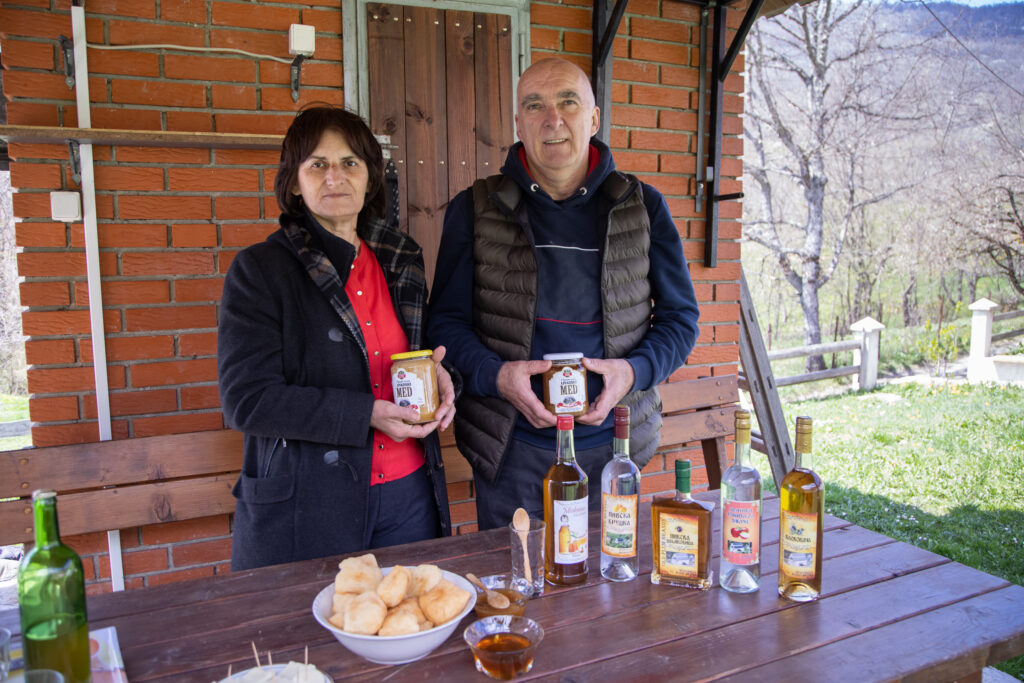
Thanks to the support of the European Union through the IPARD programme, Željko now owns two containers for transporting beehives, a facility, and modern equipment for honey processing.
In search of good “pasture” he moves his hives to various parts of Montenegro, offering us different types of honey.
“The bees spend the winter on the coast, and during the grazing season, they go to the mountains. So, the containers make this process much easier. Currently the bees are collecting coastal honey. In the autumn, they produce interesting honey typical of the Luštica region, where the bees spend the winter. It is the high-quality and sought-after arbutus honey. We also have meadow honey that the bees collect during the summer here and in the mountains,” explains Mitrić.
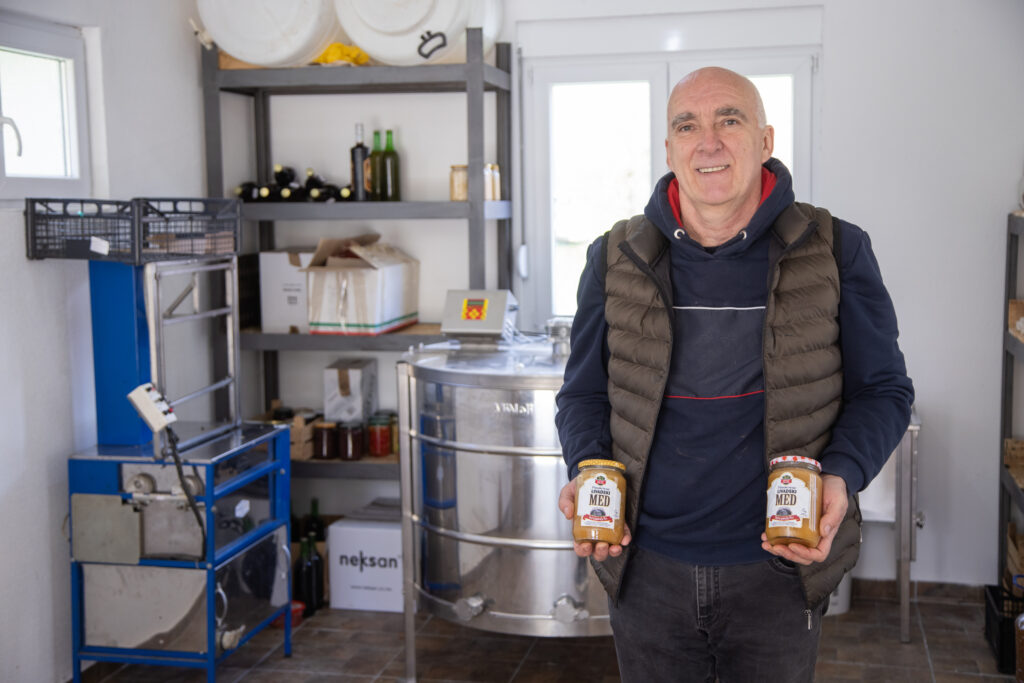
Around a hundred beehives can yield from one to two tons of honey.
As Željko emphasises, “it all depends on the year.”
Being engaged in beekeeping for many years, Željko is successfully preserving the family tradition.
And as tradition dictates, the love for beekeeping is passed down to the children. For now, the younger son is involved and helps a lot, but it is expected that his love for bees is yet to be awakened, just as it happened many times before for the Mitrić family in the past.

